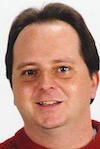Last month Peter Saxon’s article Should radio news be read in English? sparked considerable discussion.
It seems many in the industry are uncomfortable with the Americanisation of Australian English, particularly as it is spoken in radio news bulletins.
This week, award winning news presenter and radioinfo contributor, Scott Mayman hast teamed up with veteran Brisbane broadcaster John Knox to to post their perspective on the issue.
Many Australians joke that we have our own language called “Australianese” with our own slang and our own little familiar sayings that make up our own Aussie vernacular.
But our language has been infiltrated recently by an increase in “Americanisms,” both news and programmes.
For this particular story, I wanted to double check my facts, which is why I called in my mentor, John Knox who remains a well respected media figure in Queensland broadcasting.
Together, we’ve identified several words or expressions which have been broadcast on radio and television over the past few years. These “Americanisms” would normally be reviewed and replaced, once identified by a senior editor. But not anymore.
For starters, the word “shooter” has now become common place in Aussie police stories. It’s an American expression that has no place in our news bulletins. Gunman or Suspect are words that are often overlooked.
John Knox has a theory. He says this could be explained by the additional content from the United States, whether it’s American TV programs or the proliferation of the Australian media’s increased reliance on the use of news reports from foreign outlets.
The same can be said about stories in which an accused person is about to “front court” another Americanism, which is actually incorrect to use when writing Australian court stories, as the correct phrase is an accused person is about to “face court”.
These words and phrases are familiar with me. I’ve worked in the U.S. for several years and it takes a lot of thinking to figure out what is American and what is Australian. Remember, we are writing for the listener!
Knoxy says there’s another common phrase that Australians need to be aware of – it’s when we talk about our year. Many broadcasters have recently been saying our year is sounded out as “two-thousand-sixteen”. This is wrong. The proper Australian way to say our year is “two-thousand-and-sixteen” or more like “two thousand ’n’ sixteen”
Other examples from Knoxy include “Side walks is American – footpaths for us, but these days you hear more sidewalks being used in Australian news bulletins. Also, the thing you tie your boat up to here in Australia is a buoy (boy). In America it’s the same spelling but called a ‘Boo-ee.’ Which pronunciation do you think some of our Aussie news teams are using?”
But the worst of the Americanisms John says he’s heard was during a recent tribute broadcast, radio station 3KZ was referred to as, “three kay zee” and radio station 3UZ was named as, “three you zee”.
In Knoxy’s opinion, It seems that nobody really cares, or perhaps the news director was not listening at the time. The list of Americanisms is quite vast and it will be interesting to see what people who care about preserving our National identity come up with. One thing’s for sure, the Yanks won’t be changing their vernacular in a hurry.
John Knox goes on to say, “We are heavily saturated with American TV programmes which is a large part of the problem. What people don’t seem to realise is that ‘youngies’ don’t listen to radio – they don’t even own them, but oldies who live with traditional Aussie English, do! – They, in the main, are the ones who care about the language they grew up with, as taught initially by their parents and then teachers who cared. Don’t start me on ‘aitch’ and ‘haitch’. Even the Americans get that right. Once you would never hear haitch on radio but it’s starting to infest the medium.”
John believes, these days it’s a don’t care world. The reason has to do with the total relaxing of standards in just about everything.
However I go back to what I’ve always said. If you use the correct pronunciation, people who don’t know or care, won’t react negatively, whereas if you don’t, those who know better, will.
Scott says the lack of older, more mature journos and editors being hired in our newsrooms is obviously something that needs attention, if operators want to be treated with the credibility and respect they expect from their listeners and their advertisers. After all, clients of a radio station don’t want to pay money if the product is going to be disrespected on air.
John Knox is a well respected Brisbane based broadcaster whose career has spanned nearly 50 years.

Scott Mayman is an award-winning journalist and broadcaster who has worked in Australian and the United States.



HEAR BLOODY HEAR!
Question: If the young "whipper-snappers" generally don't own radios why are there so many of them on the air? I'm not doubting your statement, but it seems a great oversight on the part of managements to have on-air personalities who are going to annoy their audience with their choice of words on such a regular basis. As a one-time professional, with hopes of getting back in some time soon, I am starting to wonder if my chances would be improved if I spoke nothing but an almost unintelligible strine whine, referred to "flats" as "apartments", and breathing problems as res-pit-ORy issues, and was vitally interested in nothing more important than who pashed who how hard, on The Bachelor.
@higgins: I think there is an important distinction. The cultural heritage of many (most?) Australians is British, given who colonised the country, and migrated here in the years since. On the other hand, I get the impression that many of those people (or their children) have some kind of cringe about their background, and see Americanisms as somehow "cool" or in some indefinite way superior to what they already had.
Why are we even having this conversation? English evolves. And there is far less American content on (free to air) TV than there was back in the 60s and 70s. Think of how many groovy, awesome and rad words and expressions entered the Australian lexicon then.
While the use of zee for zed is a bit much, what's wrong with the word "shooter"? Nothing at all. Everyone knows what it means. Poor grammar is far more of a crime than a few imported words.
And why only pick on words from the US? I hear a lot of British words entering regular Australian usage. Is it just an anti-American line being peddled?
May I ask on what basis these recommendations are being made?
American English is my native variety, and I've never heard "to front court". A quick look at the Corpus of Contemporary American English shows no instances. I'd also be willing to bet that Australian announcers say "two-thousand-twelve" as often as "two-thousand-and-twelve".
One thing I've noticed in my years as a linguist is that people aren't very good at telling Americanisms from Australianisms. They generally class anything as American if it annoys them.
This is a fantastic article, well written Scott and John.
Interesting to read the comments, many of who are exactly why the article was written. You don't seem to understand the importance and need to learn why it matters.
One person queried the basis of the recommendations being made. If you bothered to research, only two of the most experienced and respected radio newsmen around.
Scott and John are quite right to be drawing this to the attention of the industry. We live in Australia and should reflect our own identity. Look to France for an example of country that closely guards the cultural evolution of their language.
When stations advertise for a person to write, source and present news as part of a breakfast onair team, but pay announcers wages not a journalist award you only encourage low standards.. but as we know saving cash remains an industry priority.